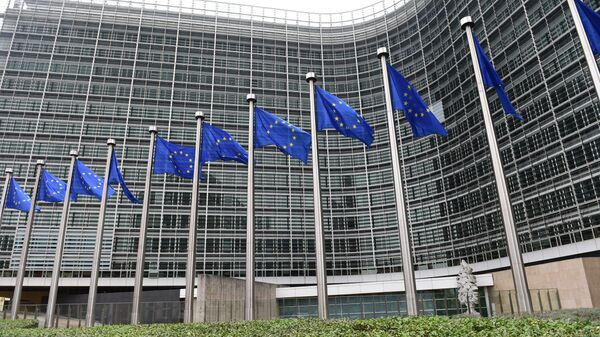The issue concerns the so-called "trilogues" — the informal part of the EU legislative process involving representatives of both legislators, who negotiate directly with one another, with the assistance of the Commission. These representatives try to agree a common text which then goes before the European Parliament and the Council of the EU for final approval.
Will the public ever know what happens in #trilogues meetings? Yes, if this happens: https://t.co/zYZORIS2SH pic.twitter.com/G74FPCvCn9
— Transparency Int. EU (@TI_EU) 14 July 2016
Yannik Bendel, EU Policy Officer for EU Integrity for Transparency International told Sputnik:
"Trilogue negotiations have become the new normal in EU lawmaking. The same transparency provisions should apply as for the rest of the legislative process. The standards should be guided by best-practice rather than the lowest common denominator."
"The best protection against undue influence by lobbyists in trilogue negotiations is not less, but more transparency. There are a number of practical and easy ways to increase the transparency of trilogue meetings by publishing agendas, participants list and minutes or notes. The real challenge, however, is to make the role and position of the Council in these negotiations more transparent."
Undue Influence
The European Ombudsman, Emily O'Reilly, said: "Trilogues are an important tool for reaching agreement between the democratically elected legislators of the Parliament and the Council alongside the Commission. They are efficient, allowing 85% of laws to be agreed at an early stage.
We propose the publishing of: #trilogue dates, summary agendas, the positions of both co-legislators https://t.co/itqVpONcgG #transparency
— European Ombudsman (@EUombudsman) 14 July 2016
"However, it is difficult to find out when trilogues are taking place, what is being discussed and by whom without a great deal of time and effort. My inquiry concerns the right balance between the public interest in transparency and the public interest in an effective and efficient legislative process, she said.
Bendel told Sputnik:
"Transparency International EU firmly believes that greater transparency and greater diversity in stakeholder input into the legislative process leads to better policy decisions, better laws and ultimately better results. More transparency is the best protection against undue influence in trilogue negotiations."


